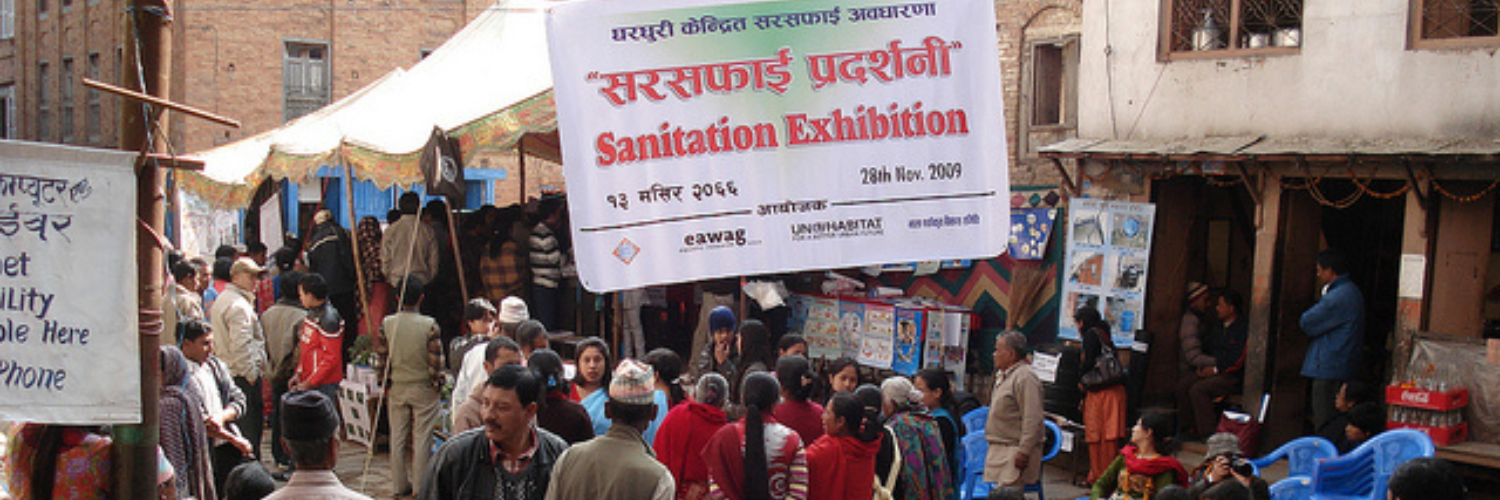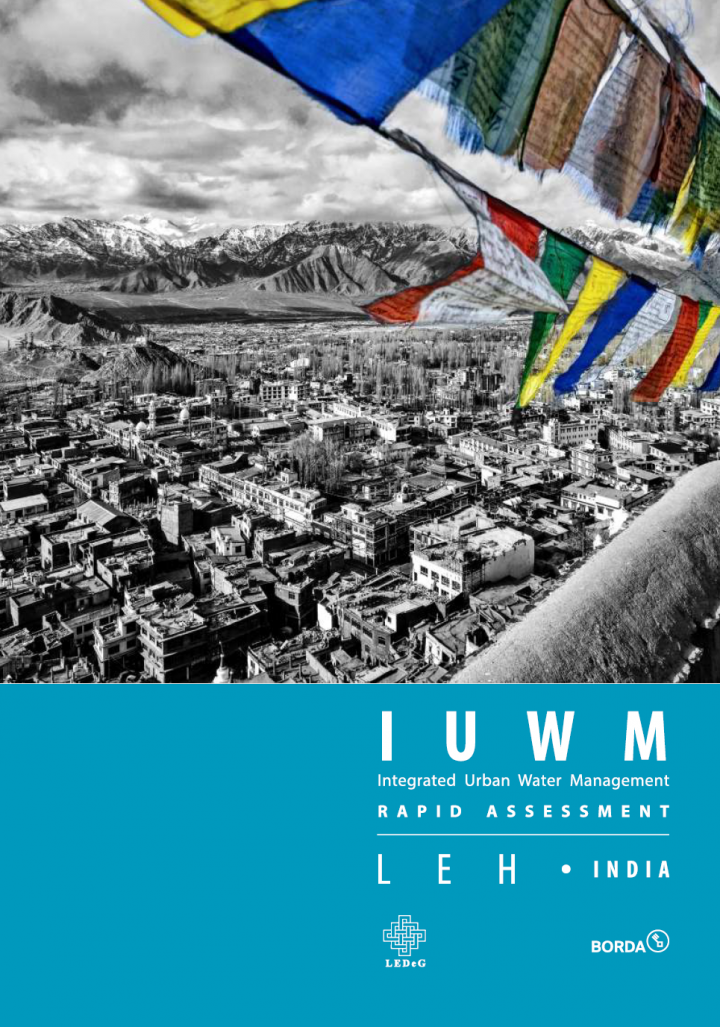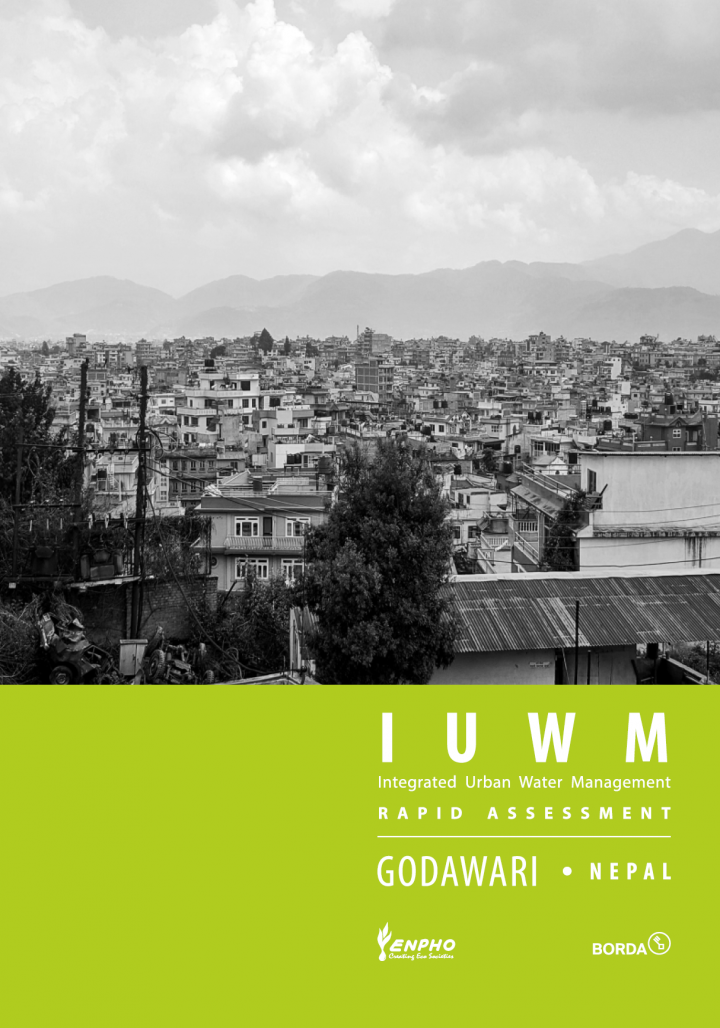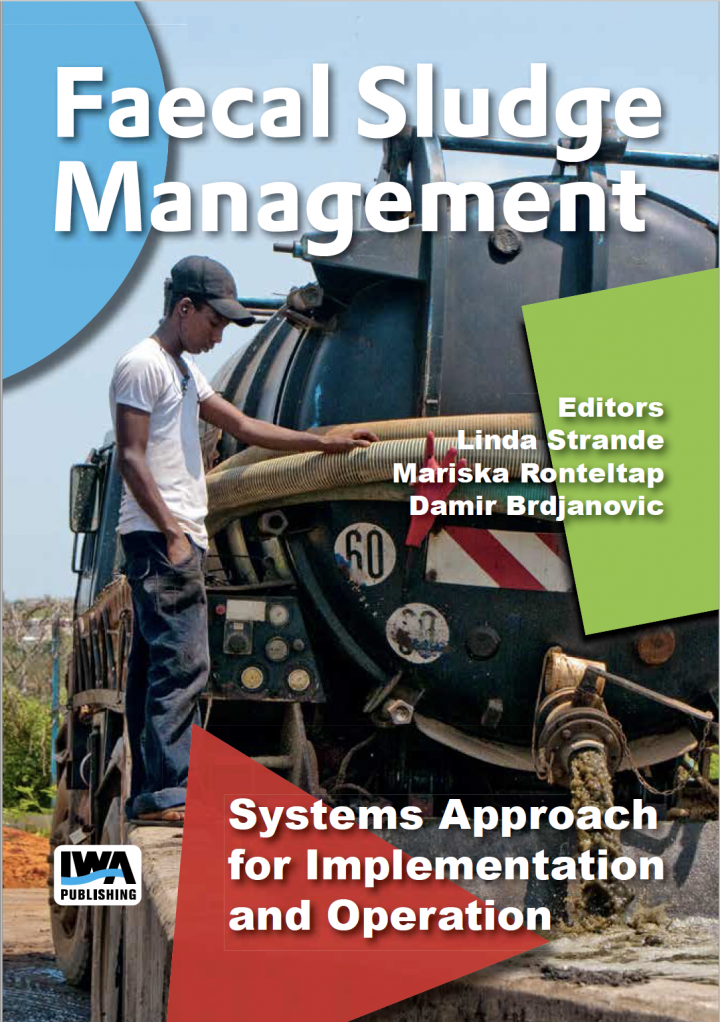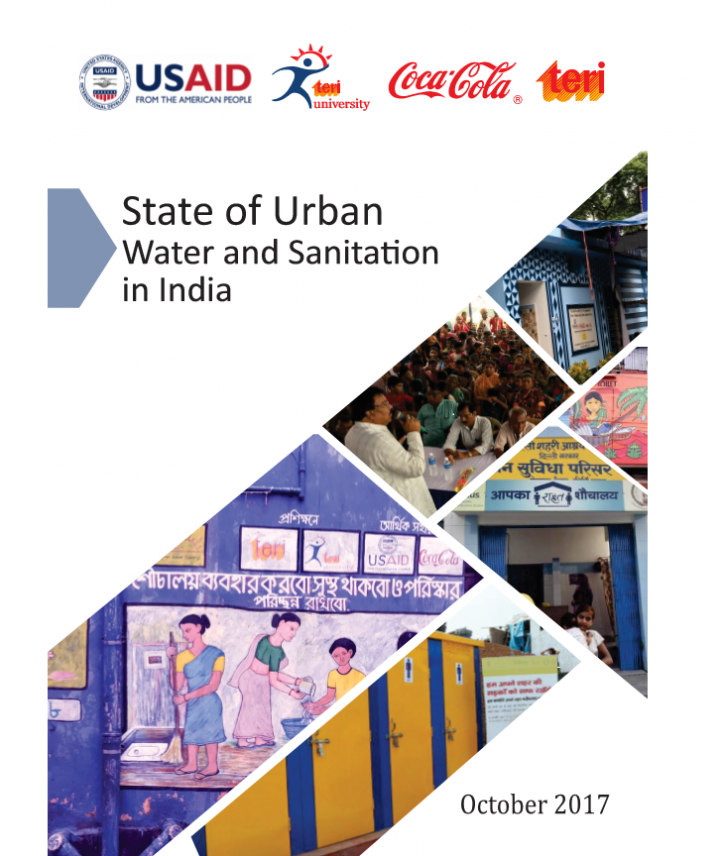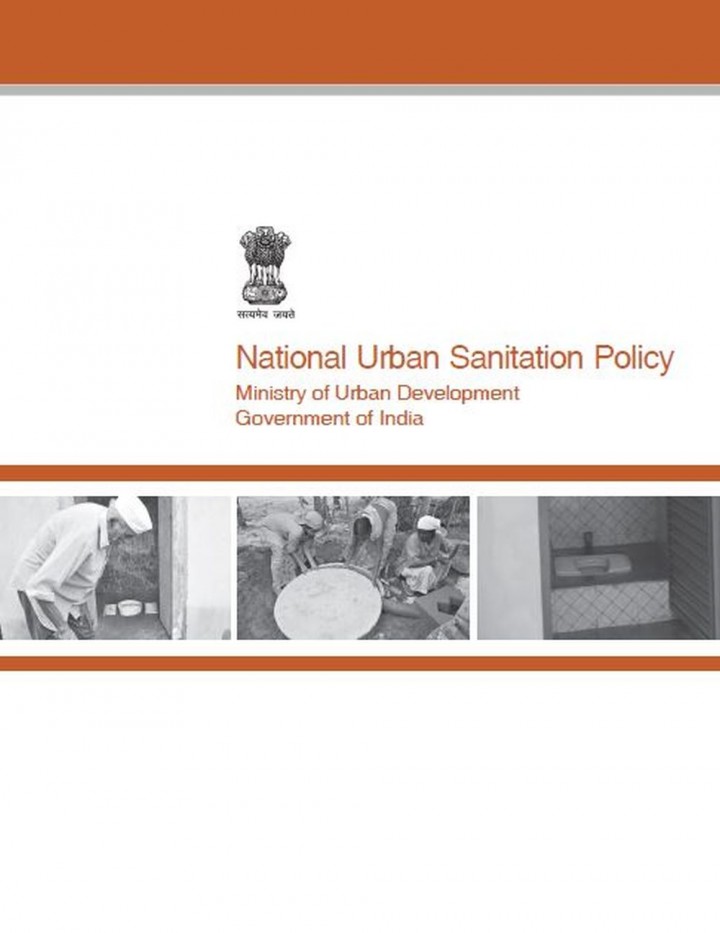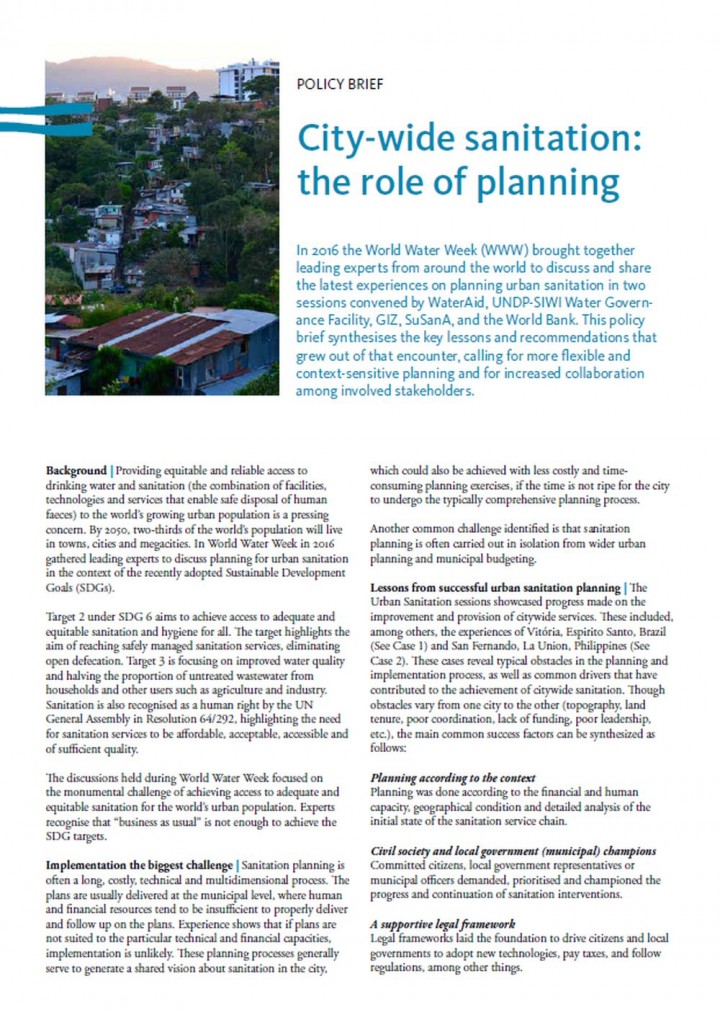Background
At the beginning of this new millennium, the earth has arrived at a historical point of inflexion. For the first time in history the world is becoming predominantly urban with more people living in cities than in rural areas. Many municipalities are hardly able to keep pace with the speed of the urban growth and face great difficulties to provide sustainable infrastructure to their citizens.
This is particularly true for mega-cities in developing countries that are most affected by these rampant urbanisation trends. The character of urban growth is often informal (unplanned) and takes place predominantly in peri-urban areas and the city fringes, resulting in a high number of unserved people, who are exposed to severe health and environmental risks.
Today’s conventional urban infrastructure planning approaches are top-down, expert-based approaches which are most often disposal or discharge oriented. To combat the worldwide sanitation crisis, it is necessary that more participatory and sustainable approaches reach the cities.
These approaches must move beyond sectoral barriers and address ‘integrated coverage’ of sustainable sanitation including basic services such as water supply, excreta and wastewater management as well as rainwater and solid waste management.
Objectives
The overall aim of this working group will be to develop strategies on how cities can adopt an appropriate planning, implementation, and management process that leads towards more sustainable sanitation solutions.
Activities
- Factsheet "Planning for sustainable sanitation"
- Thematic paper “Sustainable sanitation for cities”
- Book “Sustainable sanitation in cities: a framework for action” which also includes a collection of cases and good practice examples for sustainable sanitation in cities.
- SuSanA working group 6 meeting ''World Toilet Summit Taj Land's End, Mumbai 20.11.2018''
Working Group Leads
Christoph Luethi
Eawag/Sandec • Switzerland
Prit Salian
i-San Associates • Uganda
Abishek Sankara Narayan
Eawag • Switzerland
